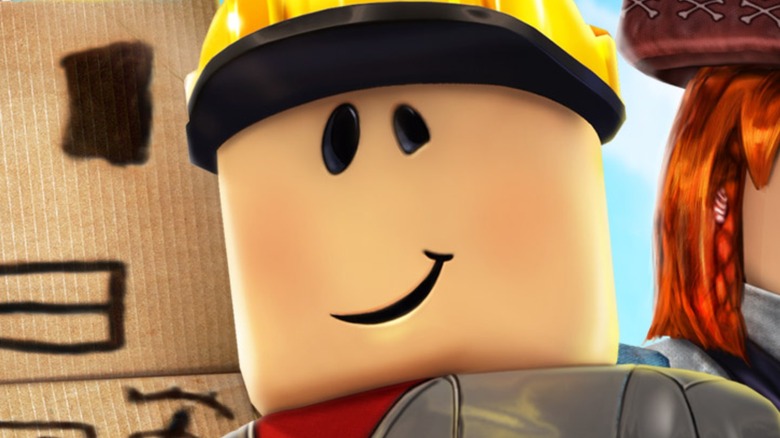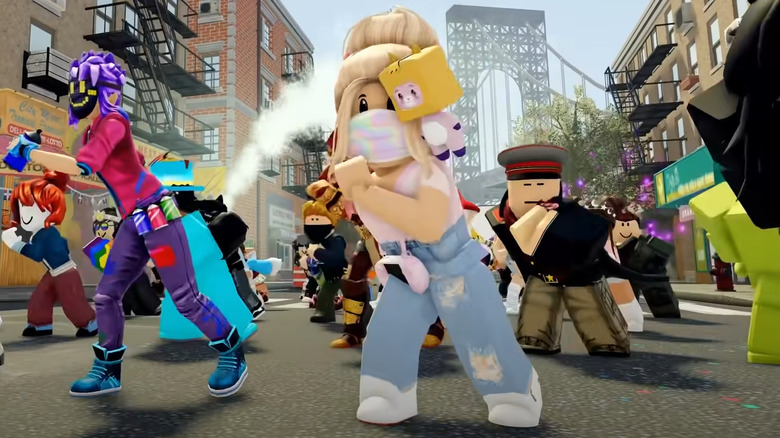What This Roblox Studio Merger Really Means For Gaming
Microsoft's purchase of Activision Blizzard isn't the only big video game company partnership that's shaking up 2022. According to a new report by Axios, two of the biggest development teams in "Roblox" history have undergone a merger to become a single unified entity. RedManta Games, developer of popular "Roblox" experiences like "Robloxian High School" and "Anime Life," has now joined up with Sonar Studios, creator of the successful "Dragon Adventures" and "Creatures of Sonaria." Together, the pair formed a new company known as Twin Atlas.
For fans of these developers' games, it's a pretty big deal to see them combine. But while the merger will surely usher in a new creative era for the involved team members, there's some greater significance to this shift in the "Roblox" status quo that shouldn't be overlooked. In fact, the birth of Twin Atlas speaks volumes about the game platform's place in the games industry as a whole.
Roblox is still growing
Twin Atlas' merger is a reminder of how far "Roblox" has come since the platform launched in 2006. Back then, most experiences were produced by individual creators and small teams, while monetization was extremely limited. 2022 sees the platform looking quite different, and it's not just because "Roblox's" most meme-able sound is gone. Nowadays, fully-functioning companies dedicate themselves to producing "Roblox" games, and they don't just survive — they thrive.
Per Axios' report, both studios merging into Twin Atlas were profitable endeavors with no outside funding. That's due in large part to the mounting popularity of "Roblox" in recent years. When Roblox Corporation went public in 2021, it had an eye-watering valuation of $45.3 billion, becoming the most valuable public gaming company (via PitchBook). "The pandemic kind of shot us five years into the future," Twin Atlas CEO Samuel Garcia told Axios.
The success of "Roblox" as a lucrative platform for both large-scale companies and independent creators signifies that it's sticking around as a leading figure in video games. It also demonstrates a growing interest from non-gaming corporations in games for advertising. Twin Atlas business development chief Gavin Rosenthal told Axios that developing sponsored "Roblox" experiences, like "The VMA Experience," accounts for 30 percent of their business. With plenty of eyes on "Roblox" from both gaming and non-gaming spaces, similar platforms could surge in popularity going forward.
"Roblox" is the future for Twin Atlas. It may herald the future for the greater games industry as well.


